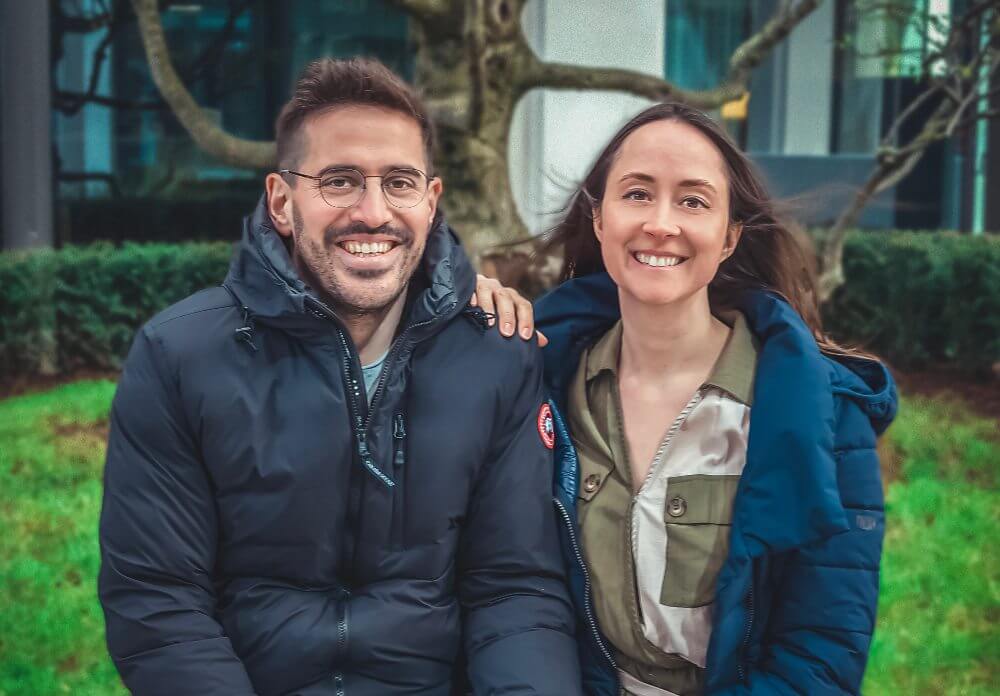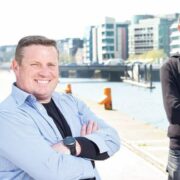Instead of organisations fearing AI, an enterprising young HR tech business called Talent Shake is all about freeing staff from repetitive tasks to focus on the strategic, bigger picture.
Led by HR tech entrepreneur Lia Boyland, Talent Shake insists that by adopting simple AI agents today, businesses have the opportunity to learn and grow alongside them.
Boyland says that these AI agents are designed to shift roles, not replace them. Instead staff can focus on strategic tasks that require human expertise.
“We are on a mission with Talent Shake to save people from repetitive tasks and save companies time and money as a result by automating these tasks with AI in the customer support industry”
The technology is designed to be scalable, future-proofed and can deliver measurable performance improvements.
The revolution began in the call centres
“We are on a mission with Talent Shake to save people from repetitive tasks and save companies time and money as a result by automating these tasks with AI in the customer support industry,” Boyland explained.
“Did you know that a customer support quality managers can spend up to 70% of their week on a variation of administrative tasks? Well we can automate that with AI that is a substantial amount of hours back, to be more specific that potentially brings back over 900 hours in a year for a team. Repetitive tasks like this have a direct impact on customer churn, employee retention and can cost businesses millions to the bottom line.”
She said that Talent Shake is starting with a specific niche targeting call centre operations in Ireland where there are approximately 250 today. “We then we plan on going after the UK market where there are 585, EU market of about 35,000 and then beyond on a global level where there are 15m call centre employees. Which gives a lot of potential for automation. This is only the beginning there are many other repetitive tasks in the customer support process that can be automated.”
A pivotal time in history
Boyland said the world has arrived at a pivotal time in history where AI has become easier than ever to implement.
“The most important thing is not your idea but rather your customer and the problem you want to solve”
“It’s about the right application of AI to business and we really believe that if a company gets this right they can make their employees their biggest asset by taking away repetitive tasks so they can focus on what humans do best. We are in particular looking at the call centre process to see what repetitive tasks we can automate with AI, we call them AI agents.
“So far we have built an AI agent that automates the process of tagging customer calls and comments for customer support quality managers, something that many of them would have been doing manually with tools like excel. It is important for companies to have an oversight on the data so they can fix issues with support or product.
“Another agent we have created is for call centre people managers coaching logs again something they usually have to manually write up and then use email to communicate with the support agent they just coached, with our agent they can simply take the notes during the meeting and our agent writes it up into a report and sends it to the relevant person.
“The important thing to note is that customers do not need to sign up to an entire platform of features that can be costly, complex and need IT involvement. With our offering they simply look up what task they want to automate and then use the AI agent we have built to do so. Think of a tool like Calendly where you use it for one simple thing booking meetings, you use our AI agents for that one simple task problem you want to solve.”
A meeting of minds
Talent Shake founders Remy Bricaud and Lia Boyland
Talent Shake is led by husband and wife team Lia Boyland and Remy Bricaud, both seasoned entrepreneurs
“As a kid, I remember when I was seven years old being at the fiddle fair I think in Wexford at the time and making handmade mini postcards to sell,” Boyland recalls. “I then really started this journey in the UCC Ignite program back in 2014, while in the end I was unable to get enough traction and did not have the financial means to continue it was a great learning and I did go through the experience of having paying customers. So you could say I am the business side of the start-up.”
Remy on the other hand is the tech nerd, he taught himself how to code at the age of 12 and since then has never shied away from learning new technologies. He then started a business as a CTO with two co-founders back in 2013 and then learnt the tough lesson of getting a lot of attention for being an exciting tech start-up and had money thrown at them in terms of funding without any focus on how to get actual paying customers
Boyland explains: “We both come with complimentary backgrounds but what actually got us into this? I think it’s always been a part of us, cheesy I know. Also I make a terrible employee because I get way too passionate and stuck in and then burn out because often times the company is happy to keep taking more and management just don’t realise. And Remy well he is really good at automating himself out of jobs quite fitting for what we are doing now!”
Having experienced the Irish start-up ecosystem 10 years ago and being able to compare it with today, Boyland says the environment has improved.
“There are a lot of supports that are led by experienced entrepreneurs and that really makes all the difference, you get to learn from their mistakes and successes, the insights are gold. I can only speak from an early stage start-up perspective but so far I have found supports like the NDRC/Republic of Work 6 week pre-accelerator programme and LEO (Local Enterprise Board) to be really great. We are also looking into the Enterprise Ireland New Frontiers program, another amazing support to give you guidance and runway.
“There is a real big effort to support female entrepreneurs which is super encouraging. I had some tough times 10 years back in the tech world with mostly men where I was not taken seriously far too often; it was both demoralising and frustrating. Skip forward to now and I am not saying it’s perfect for female entrepreneurs, but here I am nine months pregnant on a pre-accelerator program that is giving me some super support, now that is a change in the right direction. Shout out to the NDRC team!”
Map out your future
While Talent Shake is not raising funds at present, preferring to focus on early traction, it is looking at options in the near future. “We are especially interested in angel investors that understand the market we are going into customer support and AI. We are also looking into the various European grants and early supports with LEO and Enterprise Ireland. A great learning I had from a more experienced entrepreneur recently was that even if you do not plan to raise for another year it’s good to start planning and building those relationships now.”
In terms of avoidable mistakes, Boyland urges entrepreneurs to map out the supports in the ecosystem before you start. “This would have saved us some time if we had, it would have perhaps given us some more runway and made things a bit more comfortable. But hey, who said starting a business is comfortable?
“It has been said so often but it is true time is your biggest asset and you need to use it wisely. I learnt that the hard way recently by not changing a particular strategy fast enough that was not yielding the results we wanted. Listen to the market and pivot, we had a pivot back in May and I am really glad we did, the original market we wanted to go into would have been far more challenging (B2C human resources). Considering what is going on with all the layoffs it was the right decision. The most important thing is not your idea but rather your customer and the problem you want to solve.
Her advice to fellow founders? “If you are too afraid to take that leap of faith and start something, don’t be, just do it, it’s hard but worth it! Try to give yourself some nice runway, cut costs as much as possible and as mentioned know the ecosystem and it’s supports because it might be up to a year before you get paying customers. You need that runway to figure out your customers, their pain, the product and how get early traction.
“You will have to live a slightly different lifestyle for a few years as mentioned but it’s worth it. I know that as entrepreneurs we will make it work one way or the other, and if you have the drive you can too. The idea may change but you won’t, be flexible, open your eyes to what opportunities are all around you. And most importantly, listen to what the customer is saying!”







